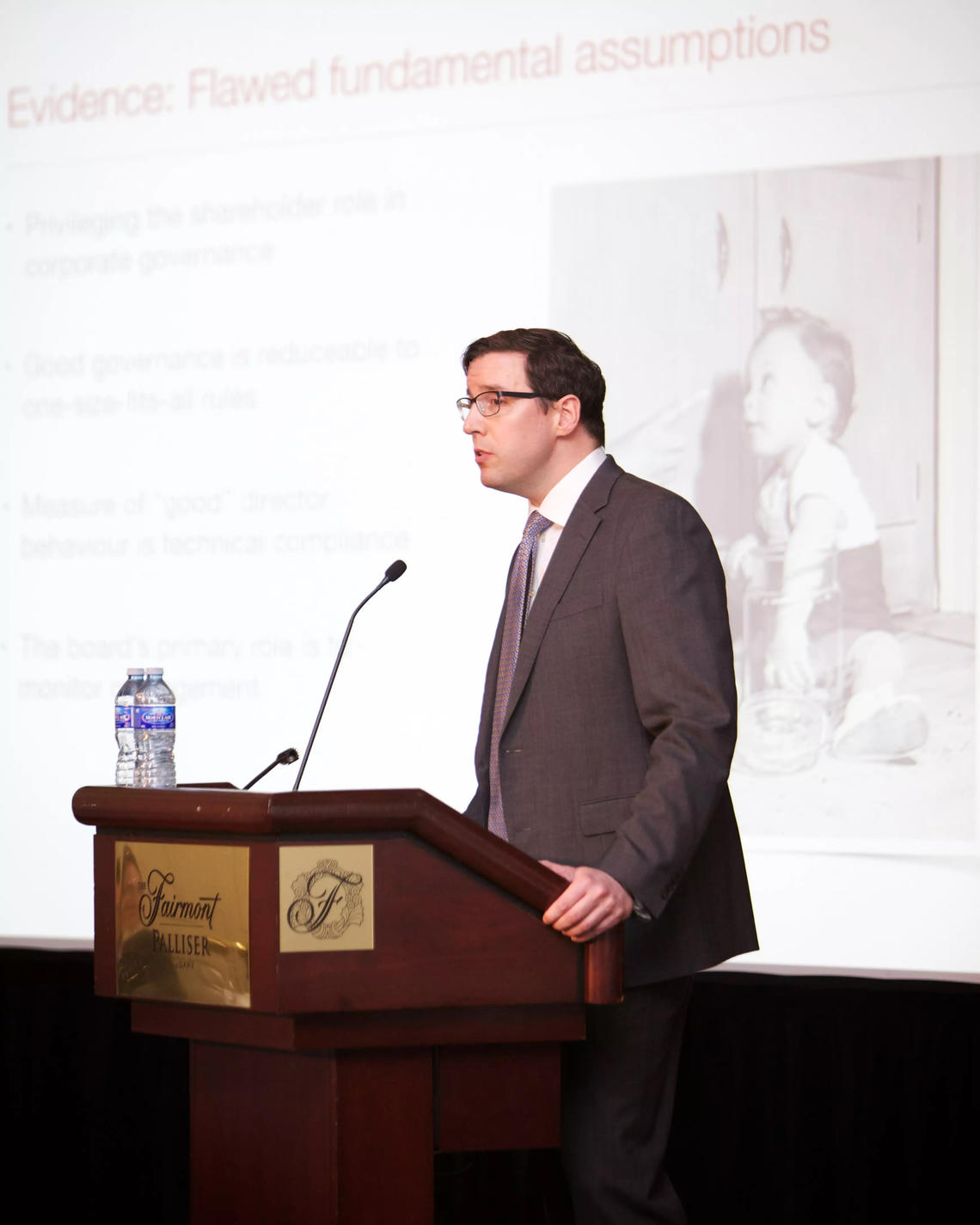Sept. 2, 2022
Unexpected appointment opens new doors for UCalgary Law prof

When Bryce Tingle of the University of Calgary’s Faculty of Law was appointed last spring to the board of directors of the Alberta Securities Commission (ASC), the news came out of the blue.
Even though Tingle had spent 18 years on the advisory committee at ASC — a group of lawyers that provides feedback for policy proposals — he never expected to find himself a member of the commission itself.
“My appointment came as a surprise,” says the professor. “I suspect it happened because the government cares about the same things that I do: facilitating access to capital for Alberta businesses.”
Tingle, QC, is considered a cornerstone UCalgary Law faculty member, being named one of the university’s Peak Scholars in 2014 and 2015, and also winning the Howard Tidswell Memorial Award for Teaching Excellence in 2019. As he settles into his new part-time position with ASC, Tingle provides some insight into his work, and the work of the commission.
Q. What is your role at the University of Calgary?

Tingle, third from left, has vast experience sitting on different boards for a variety of tech companies and startups.
Bryce Tingle
A: I’m a tenured professor at the university, so I do all the things that tenured professors do. I handle administrative responsibilities of the law school; I teach a full course load, mostly in the areas of entrepreneurial law and corporate finance. I also run the school’s BLG Business Venture Clinic, which provides free legal assistance to entrepreneurs on campus.
The last thing I do is research, of course. My areas of research are corporate governance and capital markets. I am particularly interested in the way our corporate governance regime may be hurting our capital markets.
Q: Tell us more about the tech companies you are a part of.
A: Before I became a professor, I was initially a lawyer in private practice who acted for venture capital funds and startup companies. I subsequently moved in-house as the general counsel for several large, technology-inflected international companies and, as result of my early career, I have come to know a lot of tech people here in the province.
I am currently serving as a director of a nanotechnology company and a software company that assists engineers and designers communicate complex 3D models with others in their organization. This last company is on its second round of venture capital financing and has clients like Boeing and Caterpillar.
Q: How has all your previous experience guided you to where you are today?
A: People become professors for a lot of reasons, but one of my reasons is that I really care about improving the quality of the environment for new businesses forming in Alberta. My prior professional career has been helpful in illuminating the kinds of problems businesses actually run into. If you’ve ever been in a boardroom or the C-suite, and have actually tried to build a business, you realize the degree in which many academic models of how businesses work are deeply flawed, which is helpful in avoiding being misled about what businesses need or the actual impact of proposed regulatory changes.
Q: How did you come into your role at ASC? Can you tell us a little about that role?

Bryce Tingle
A: There are nine independent members of the Securities Commission. They are appointed for three-year terms and they have several general types of responsibility. First, they act as a board of directors for the commission itself. Second, they approve and provide input on securities policy and regulation. Third, they participate in panels for hearings when someone breaks securities laws like engaging in insider trading, for example.
My appointment came about because the provincial cabinet and I worry that our national public capital markets are doing quite poorly, and that Alberta needs to improve its access to capital for new businesses being started here. Since becoming a professor about 10 years ago, I’ve provided both Conservative and NDP governments with informal advice based on my research and professional experience.
Q: What’s to come with your new role with ASC?
A: I’m excited to have a say in the formation of the securities policies. I have an opportunity to talk about what empirical research shows in particular areas, and to engage in a productive dialogue about which direction regulation should go. This new role will give me an opportunity to look at areas, like insider trading, that solicitors rarely encounter.
I have a lot of respect for the people at the Alberta Securities Commission; I am confident we can improve the ecosystem for businesses of all size in this province. We all care a great deal about making this a place that will provide good jobs for the next generation — represented, for example, by the law students I teach every year.






